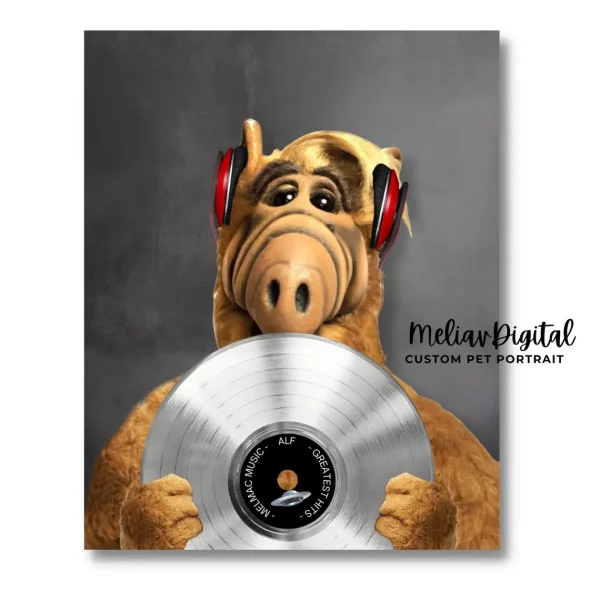
How Personality Traits Influence Our Attachment to Animals 🐾
Exploring the Emotional and Psychological Benefits of Pet Ownership for Neurotic and Conscientious Individuals 🌟
Introduction
Ever wondered why some people seem to have an unbreakable bond with their pets? 🐶🐱 If you’re more neurotic and conscientious, you might be more likely to form a strong attachment to your furry friends. Pets can be an incredible source of comfort, reducing stress and bringing joy into our lives. For more detailed information on how this works, check out this comprehensive guide on pet attachment 🌈.
The Link Between Personality and Attachment to Pets
Numerous studies have shown that certain personality traits can significantly influence how strongly we bond with our pets. Neurotic individuals, who often experience high levels of anxiety and emotional instability, may find solace in the companionship of animals. Similarly, conscientious people, who are typically organized and responsible, may develop a deeper attachment due to their innate sense of duty and care.
For a deeper dive into how personality traits influence pet attachment, read this insightful article 🌟.
How Neuroticism Influences the Relationship with Pets
Neuroticism is characterized by a tendency to experience negative emotions such as anxiety, anger, and depression. Individuals high in neuroticism may turn to pets for emotional support, as animals offer unconditional love and companionship. This connection can provide a much-needed outlet for their emotions and help them cope with daily stress. For more insights into this relationship, visit this informative article on neuroticism and pets 🌟.
Conscientiousness and Its Impact on Animal Care
Conscientious people are often seen as reliable and diligent. These traits translate well into pet ownership, as taking care of an animal requires a great deal of responsibility and attention. Conscientious individuals might find that their pets help them stay organized and give them a sense of purpose, leading to a stronger emotional bond.
Emotional and Mental Benefits of Having Pets
Having a pet can offer numerous emotional and mental health benefits, particularly for those with high levels of neuroticism and conscientiousness. Here are some of the key advantages:
- Stress Reduction: Pets can help lower stress levels by providing companionship and a sense of calm.
- Decreased Anxiety: The presence of a pet can reduce anxiety and provide comfort during difficult times.
- Improved Mood: Interacting with pets can release endorphins, which improve mood and overall well-being.
- Enhanced Social Interaction: Pets can serve as social catalysts, helping their owners meet new people and form connections.
Personal Experience: How Pets Can Change Your Life
In my case, having a dog, and later a dog and two cats, has made a world of difference. Coming home from a stressful day at work to the welcoming presence of my pets has helped me stay balanced and relaxed. Initially, work-related stress left me feeling anxious and depressed, but adopting a small dog, a Jack Russell Terrier, significantly improved my emotional well-being. Later, having two cats added to my sense of companionship, helping me feel calm and centered. Remarkably, I was able to stop taking medications like diazepam because my pets provided the emotional support I needed. Caring for them gave me a sense of responsibility and purpose, helping me overcome negative emotions.
Studies and Statistics Supporting the Relationship
Research consistently supports the idea that neurotic and conscientious individuals are more likely to form strong attachments to their pets. For example, a study published in the Journal of Applied Animal Welfare Science found that people with higher levels of neuroticism reported stronger bonds with their pets. Similarly, conscientious individuals tend to be more attentive and dedicated to their pets’ needs, leading to deeper connections.
Tips for Those Considering Pet Ownership
If you’re thinking about getting a pet, here are some tips to help you make the most of the experience:
- Choose the Right Pet: Consider your lifestyle and personality when selecting a pet. Different animals require different levels of care and attention.
- Prepare Your Home: Ensure your home is safe and welcoming for your new pet. This includes having the necessary supplies and making any needed adjustments.
- Invest Time and Effort: Building a strong bond with your pet takes time and effort. Be patient and consistent in your care and interactions.
- Seek Professional Advice: If you’re new to pet ownership, don’t hesitate to seek advice from veterinarians or experienced pet owners.
Conclusion
In conclusion, personality traits like neuroticism and conscientiousness can significantly influence how strongly we bond with our pets. For many, pets provide essential emotional support and a sense of purpose, improving mental health and overall well-being. If you’re considering adding a furry friend to your life, remember that the benefits can be profound. For more on the psychological impact of pets, visit this detailed article on how pets enhance our lives.
Further Reading
- Wikipedia: Pet Ownership and Mental Health
- New York Times: How Pets Can Help Us
- Nature: The Science of Pet Attachment
- National Geographic: Pets and Mental Health
- Shop for Pet Supplies
This comprehensive article integrates research findings, personal experiences, and practical advice, offering a well-rounded perspective on how pets can enhance our lives, especially for those with specific personality traits. Through a combination of emotional insights and scientific evidence, it provides valuable information for current and prospective pet owners.
❤️ Immortalize your pet with an unforgettable portrait.🐶😺
How to Act if We Are Given a Pet While We Have a Depressive Condition 😺🐶
Navigating life with a depressive condition can be incredibly challenging. When a well-meaning friend or family member gifts you a pet, it can bring a wave of emotions 🌊. Pets can offer companionship and joy, but they also require care and responsibility. Here’s a comprehensive guide on how to manage this situation with grace and positivity, ensuring both you and your new furry friend thrive 🐾.
Understanding the Emotional Impact of Pets on Depression 🧠❤️
The Science Behind Pets and Mental Health 🧬
Studies have shown that pets can significantly impact mental health. Interactions with animals can lower cortisol levels (a stress-related hormone) and boost serotonin and dopamine levels, which can improve mood and overall well-being 🌟. According to Nature.com, pet ownership is linked with reduced symptoms of depression and anxiety (Nature.com).
In 2024, a study by the American Psychological Association revealed that pet owners with depressive conditions reported fewer symptoms over time compared to those without pets 🐕. This is because pets provide a sense of purpose, reduce loneliness, and encourage physical activity.
Real-Life Stories 📖
My Journey with Bella 🐱: “When I was diagnosed with depression, my sister gave me Bella, a fluffy Siamese cat. Initially, I was overwhelmed, but Bella’s constant purring and playful antics gradually lifted my spirits. She gave me a reason to get out of bed every morning. We developed a routine, and her presence became a comforting constant in my life.”
The Healing Power of Max 🐕: “I never imagined a dog could change my life until Max, a golden retriever, entered it. He demanded walks, which forced me to leave the house and interact with nature. Max’s unconditional love and loyalty made me feel valued and less alone. Over time, my depressive episodes became less frequent and severe.”
Steps to Take When You Receive a Pet 🐾
1. Assess Your Readiness 🧐
Before diving into pet ownership, evaluate your current mental state. Ask yourself:
- Do I have the energy to care for a pet daily? 🕒
- Can I financially support a pet? 💵
- Do I have a support system in place if I need help? 👥
If the answers are yes, proceed with cautious optimism. If not, it might be worth discussing with the person who gifted you the pet about finding an alternative solution, such as temporary fostering.
2. Establish a Routine 🗓️
Pets thrive on routine, and so do people with depression. Set specific times for feeding, walking, and playtime. A consistent schedule can provide structure and a sense of normalcy 🕰️.
3. Utilize Resources 🛠️
Many organizations and websites offer support for new pet owners. The National Geographic website provides extensive information on pet care, from nutrition to training (NationalGeographic.com). Additionally, personalized pet portraits can be a delightful way to celebrate your new companion. Check out digital pet portraits for a special memento.
4. Seek Professional Help 🩺
If caring for a pet becomes overwhelming, don’t hesitate to seek help. Veterinarians can offer advice on pet care, and mental health professionals can provide strategies to manage your condition. Sometimes, integrating pet therapy into your treatment plan can be beneficial.
5. Create a Support Network 🤝
Reach out to friends, family, or local pet communities. They can offer advice, share experiences, and even help with pet care when needed. Online forums and social media groups are also great places to connect with other pet owners.
Benefits of Pet Ownership for People with Depression 🌈
Companionship and Emotional Support 🥰
Pets offer unwavering loyalty and companionship. They are always there to listen without judgment and provide comfort during tough times. This bond can significantly alleviate feelings of loneliness and isolation.
Increased Physical Activity 🏃♀️
Dogs, in particular, require regular exercise, which can encourage you to get moving. Physical activity releases endorphins, which act as natural mood lifters. Even playing with a cat can be a fun way to get some light exercise.
Sense of Purpose 🎯
Caring for a pet gives you a daily purpose and responsibility. This can be incredibly motivating, especially on days when depression makes it hard to find reasons to get out of bed.
Social Interaction 🗣️
Walking a dog or visiting a pet store often leads to interactions with other pet owners. These social exchanges can be a great way to meet new people and feel more connected to your community.
Challenges and How to Overcome Them 🛤️
Overcoming Initial Overwhelm 😥
It’s normal to feel overwhelmed when first adjusting to pet ownership. Break down tasks into manageable steps and celebrate small victories. Remember, it’s okay to ask for help.
Managing Pet Care During Depressive Episodes 🌧️
Create a contingency plan for days when you’re struggling. This might include having a trusted friend or family member on standby to help with pet care or hiring a pet sitter.
Financial Considerations 💰
Pets can be expensive. Budget for regular expenses like food, vet visits, and emergency care. There are also resources available for low-cost veterinary services if needed.
Resources and Further Reading 📚
For a deeper dive into the benefits and challenges of pet ownership for individuals with depression, explore these resources:
- Wikipedia on Pets and Mental Health
- New York Times Article on Pets and Mental Health
- Nature.com on the Science of Pets and Mental Health
For personalized pet portraits, visit Meliav Shop.
FAQ Section: Questions and Answers 🎤
Q: Can any type of pet help with depression? A: While dogs and cats are the most common pets associated with mental health benefits, other animals like rabbits, birds, and even fish can provide emotional support and companionship.
Q: How do I know if I’m ready for a pet? A: Assess your current lifestyle and mental state. If you feel you can commit time, energy, and resources to a pet, you might be ready. Consider starting with a lower-maintenance pet if you’re unsure.
Q: What if my depression worsens after getting a pet? A: It’s crucial to seek professional help if your depression worsens. Reach out to mental health professionals who can offer strategies to cope. You can also talk to a veterinarian about ways to better manage your pet’s needs.
Q: Are there support groups for pet owners with depression? A: Yes, many online and local communities offer support groups for pet owners dealing with depression. These can be valuable resources for advice, sharing experiences, and emotional support.
In conclusion, receiving a pet while managing a depressive condition can be a life-changing experience. With careful planning, support, and resources, you can turn this challenge into an opportunity for healing and growth. Embrace the joy and companionship that your new pet brings, and remember, you are not alone on this journey 💖.
For more insights and personalized pet portraits, check out digital pet portraits and shop at Meliav.
Stay positive and enjoy every moment with your furry friend! 🐾🌟
free design
Subscribe to our blog and get a code for a 20% discount
Would you like your pet's portrait in more places?. These beautiful gifts are for you:
Funniest pet portraits ever seen ❤️
Promotions: Custom Pet Portrait offers in Black Friday






